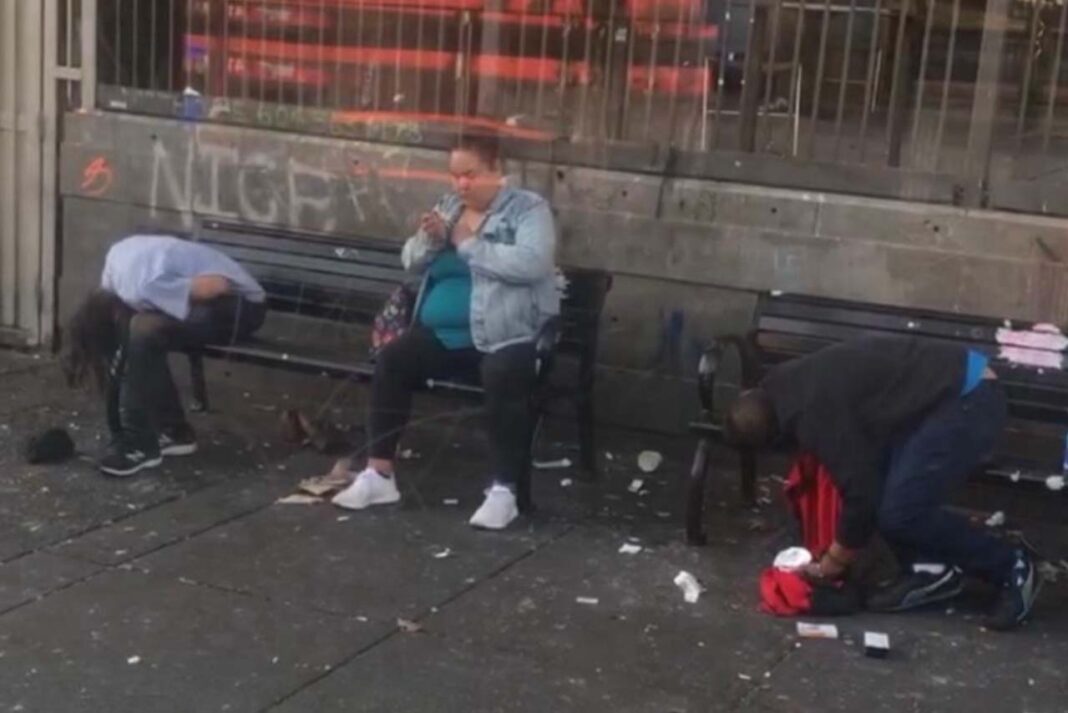The health of societies is tested not only by biological epidemics but also by cultural and psychosocial contagions. Addiction, in this regard, constitutes a multilayered crisis that transcends the individual’s psychological collapse and corrodes collective trust in public space. Scenes of substance use observed in global metropolises such as Vancouver do not merely reveal personal pathologies; they also represent what Zygmunt Bauman (2000) described as one of the most visible manifestations of “liquid modernity” and social disintegration.
The presence of homeless and addicted individuals in public spaces does not only make social exclusion visible; it simultaneously threatens the collective sense of social trust, normative continuity, and the “social contract of living together.” Therefore, addiction cannot be confined to clinical definitions; it is a phenomenon with sociological, cultural, and ethical dimensions.
The Neuropsychological and Clinical Dimension of Addiction
The National Institute on Drug Abuse (NIDA) defines addiction as a “chronic, relapsing brain disease characterized by compulsive drug seeking and use despite harmful consequences.” This definition highlights the neurobiological roots of addiction: dysfunction in the dopaminergic reward system triggers impulsive behaviors and deprives the individual of volitional control (Volkow & Morales, 2015).
Yet, explaining addiction solely through neurobiological determinism is insufficient. My clinical observations indicate that addiction frequently coexists with depression, anxiety disorders, and post-traumatic stress disorder (PTSD). At this juncture, Gabor Maté’s (2008) concept of the “shame–trauma cycle” becomes critical: trauma instills in the individual a sense of “ontological defectiveness,” while substance use offers a temporary escape from shame. However, when shame inevitably returns, the cycle of addiction intensifies.
Social Isolation, Norm Violation, and the Erosion of Trust
Émile Durkheim (1893) argued that social order rests upon the “collective conscience.” Public substance use undermines this collective conscience and erodes interpersonal social trust. Cacioppo and Hawkley’s (2003) research demonstrates that social isolation not only heightens individual stress and anxiety responses but also dissolves trust-based relationships.
Robert Putnam’s (2000) theory of “social capital” further emphasizes that public trust is the foundation of cooperation and solidarity. The visibility of substance use in public space corrodes this capital, weakening social bonds and rendering solidarity fragile. From Michel Foucault’s (1975) perspective of “biopolitics,” addiction signals not only a loss of control over the individual’s body but also a breakdown in society’s mechanisms of discipline and regulation.
Clinical and Social Observations
During my observations in downtown Vancouver, scenes of unconscious bodies on sidewalks and individuals carrying syringes in their hands were not merely personal tragedies; they symbolized the collapse of society’s “contract of trust.” Families deliberately avoided these areas, vividly illustrating how norm violations shape collective behavior.
Repeated exposure to such scenes leads to desensitization. What initially provokes fear or concern gradually becomes normalized. For younger generations, this desensitization is particularly dangerous, as it reduces the perceived risks of substance use and increases the likelihood of adopting addictive behaviors.
Recovery: From Biological Sobriety to Ontological Renewal
Recovery is not limited to the cessation of physiological dependence. Breaking a syringe, abandoning alcohol, or ceasing heroin injection marks physical sobriety. Yet genuine recovery begins when the individual dares to confront shame and reframe trauma.
As Russell Brand has emphasized, helping those with addiction requires viewing them not as “morally corrupt” but as “spiritually unwell.” The greatness of a society is measured by how it treats its most vulnerable members. In this sense, addiction is not only a clinical issue but also an ethical, political, and social challenge.
Conclusion
Public substance use is more than an individual tragedy; it is a profound test of the psychological, sociological, and ethical fabric of modern societies. Social isolation, normative disintegration, and the erosion of social trust threaten the very texture of collective life.
The solution lies not only in individual rehabilitation centers but also in the reconstruction of public spaces, the institutionalization of solidarity, and the restoration of social capital. Psychology, sociology, and ethics must work in concert to frame addiction not merely as an individual pathology but as a collective trauma.
References
Bauman, Z. (2000). Liquid Modernity. Cambridge: Polity Press.
Cacioppo, J. T., & Hawkley, L. C. (2003). Social isolation and health, with an emphasis on underlying mechanisms. Perspectives in Biology and Medicine, 46(3), S39–S52.
Durkheim, E. (1893). The Division of Labor in Society. New York: Free Press.
Foucault, M. (1975). Discipline and Punish: The Birth of the Prison. New York: Pantheon.
Maté, G. (2008). In the Realm of Hungry Ghosts: Close Encounters with Addiction. Toronto: Knopf Canada.
Putnam, R. D. (2000). Bowling Alone: The Collapse and Revival of American Community. New York: Simon & Schuster.
Volkow, N. D., & Morales, M. (2015). The brain on drugs: From reward to addiction. Cell, 162(4), 712–725.


